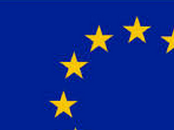Private loan balances in the euro area continue to decline. Last month’s drop of 2.2% from the previous year was worse than had been expected by economists.

 |
| Source: Investing.com |
The area’s banks are undergoing a sharp deleveraging exercise with balance sheets shrinking due to both loan write-downs and extraordinarily weak lending. Maturing loans are not being fully replaced with new credit. Pressure from the ECB’s 2014 stress testing of banks (similar to what the Fed just completed) is also discouraging credit expansion.
Reuters: – Lending to households and firms in the euro zone shrank further in February and money supply growth remained subdued, adding to the European Central Bank’s list of concerns ahead of its policy meeting next week.
…
The ECB’s health check of the euro zone’s largest banks’ balance sheets before it takes over banking supervision in November is exacerbating the situation, with lenders reluctant to take on more risk and trying to slim their loan books instead.Bank balance sheets declined by around 20 percentage points of gross domestic product last year, partly in anticipation of the health check, ECB President Mario Draghi said on Tuesday.
And more is to come this year.
UniCredit, for example, posted a record 14 billion-euro loss this month due to huge writedowns on bad loans and past acquisitions as it moved to clean up its balance sheet.
The ECB welcomed the move and encouraged other banks to not to wait with any corrective measures until the review’s results are released in October.
Some have pointed to a “glimmer of hope” in the household lending balances which showed a small uptick in credit expansion.
Â
 |
| Eurozone household loan growth (YoY); Source: ECB |
The increase however came from a slightly slower decline in consumer credit (credit cards, auto loans, etc.), which continues to fall (year-on-year change is firmly in the red). This contraction to a large extent is driven by weak demand.
Â

